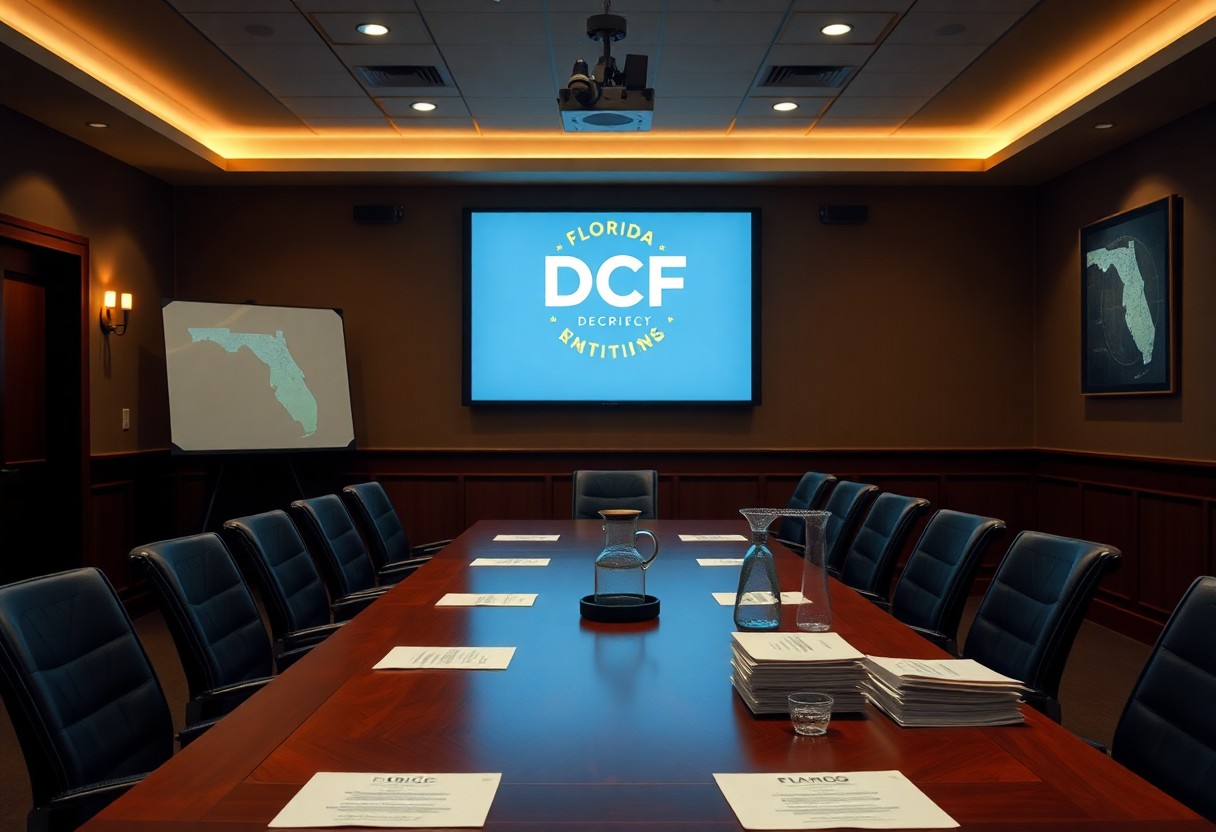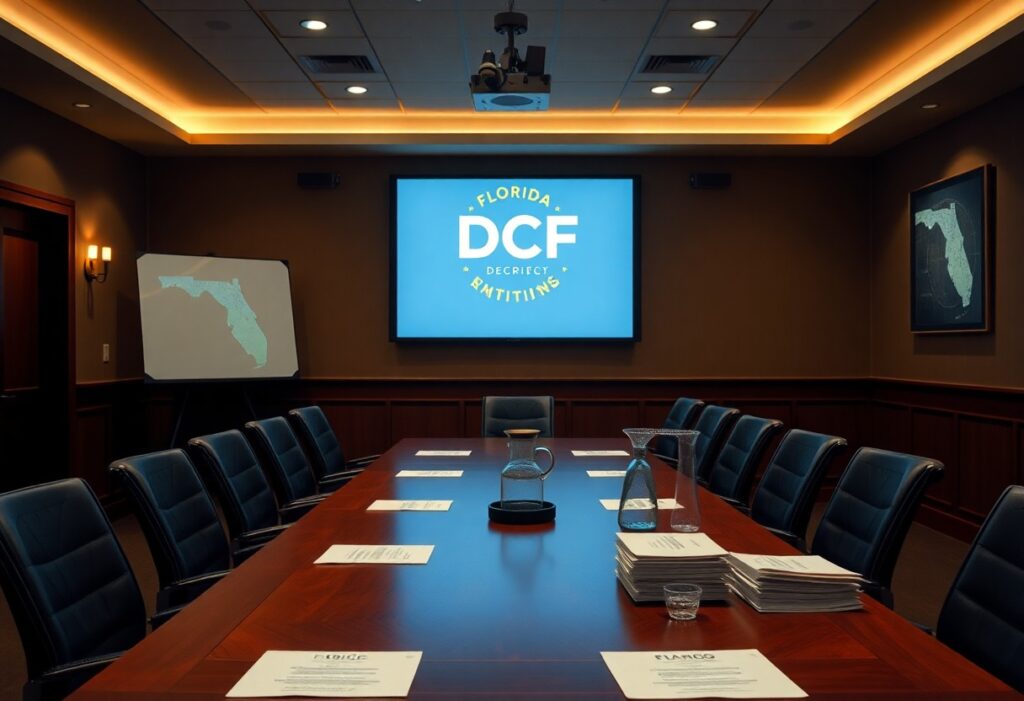DCF hearings can be intricate, and adequate preparation is key to presenting your case effectively. You need to understand the process and gather necessary documentation to support your position. This guide will walk you through important steps, including what to expect during the hearing, how to assemble your evidence, and strategies for making your case compelling. With the right preparation, you can navigate this experience with confidence and clarity.

Key Takeaways:
- Familiarise yourself with the DCF fair hearing process, including the topics covered and the structure of the hearing.
- Gather all relevant documents and evidence to support your case, such as reports, correspondence, and witness statements.
- Prepare a clear presentation of your arguments, ensuring that you can articulate your position effectively.
- Consider seeking legal advice or representation to navigate the complexities of the hearing and strengthen your case.
- Practice your presentation and responses to anticipated questions to increase your confidence during the hearing.
Decoding the DCF Fair Hearing Process
The Purpose and Importance of DCF Fair Hearings
The DCF fair hearing process serves as a critical mechanism for individuals who contest decisions made by the Boston Department of Children and Families (DCF). This forum allows you to voice your grievances and address any adverse determinations regarding your benefits, services, or rights related to child welfare. Fair hearings not only provide an opportunity to seek a review of these decisions but also ensure accountability within the DCF system, promoting transparency and fairness in administrative procedures.
You may find that the importance of fair hearings extends beyond personal disputes. They play a vital role in identifying systemic issues within the DCF’s operations. By bringing attention to specific cases, these hearings can result in policy changes or enhancements that ultimately benefit not just you, but the wider community as well. Engaging actively in this process can instigate meaningful dialogue and reform, contributing to the overall improvement of child welfare practices across Boston.
Key Regulations Governing DCF Hearings in Boston
The framework for DCF fair hearings is anchored in Boston’s administrative law, specifically outlined in the Boston Statutes and the Boston Administrative Code. One key regulation is the requirement for timely notice of the hearing, which ensures that you receive appropriate communication about your rights, the details of your case, and the procedures involved in the hearing. Additionally, these regulations set forth the standards for evidence, the conduct of the hearing officer, and the timeline for a decision following the hearing.
Another pertinent aspect of these regulations is the standard of proof required during the hearing. In most cases, you will need to demonstrate by a preponderance of the evidence that the DCF’s decision was incorrect. This means presenting sufficient evidence to convince the hearing officer that it is more likely than not that your claim is valid. Understanding these regulations equips you with the knowledge necessary to navigate the hearing process and advocate effectively for your position.
Familiarity with the structure of these regulations allows you to prepare thoroughly for your hearing. For instance, understanding the role of the hearing officer—who acts as an impartial adjudicator—and knowing how to present your arguments logically within the framework of the law enables you to articulate your case with confidence. Each regulation is designed to uphold fairness and due process, making your comprehension of them vital to achieving a favourable outcome.
Essential Preparations Before the Hearing
Gathering and Organising Your Documentation
Gathering all relevant documentation before the hearing will provide a solid foundation for your case. Start by compiling any letters, emails, and notices you have received from the Department of Children and Families (DCF). These documents play a pivotal role in substantiating your claims and clarifying your position. Additionally, if your case involves any child welfare assessments or evaluations, ensure these are included as part of your organised documentation. Organising this material systematically—perhaps in chronological order—can facilitate a smoother presentation of your case during the hearing.
Beyond DCF correspondence, include documents related to your personal circumstances that may impact the case. This might consist of school records, medical reports, or evidence of your participation in community or parenting programs. Having these materials readily available and neatly organised will not only help you stay focused during the hearing but will also demonstrate to the presiding officer that you are diligent and responsible regarding your family’s welfare.
Understanding the Role of Witnesses and Experts
Witnesses and experts can significantly influence the outcome of your hearing by providing testimony that supports your position. Identifying who can serve as a credible witness is vital. This may include friends, family members, or professionals who can speak to your parenting abilities or the child’s best interests. It’s paramount to prepare your witnesses in advance, ensuring they understand the key points they should raise and are comfortable discussing them during the hearing.
Experts, such as child psychologists or social workers, may lend additional credibility to your case. Their professional opinions can help elucidate complex issues and provide an objective viewpoint that supports your arguments. Engaging with these experts ahead of time allows you to gather informed insights that will strengthen your argument at the hearing. If you opt to include expert testimony, ensure that they are well-versed in your case specifics and can convey their findings effectively.

Crafting Your Case: Strategies for Success
Building a Compelling Narrative
As you prepare your case for the DCF fair hearing, weaving a compelling narrative will enable you to present your circumstances in a relatable and coherent manner. Start by outlining the sequence of events that led to the hearing, ensuring you emphasize key details that paint a clear picture of your situation. Incorporate personal anecdotes that demonstrate your strength and commitment to addressing the concerns raised by the DCF. For example, if you’ve taken steps such as attending parenting classes or engaging in counselling, highlighting these actions substantiates your dedication to your child’s welfare.
Additionally, consider collecting supporting documentation that enhances your narrative. This can include character references, reports from independent professionals, or evidence of your proactive efforts to create a safe environment for your child. Each piece of evidence should connect back to your main points, reinforcing the story you’re telling and demonstrating your capacity for responsible parenting. Such detailed preparation can significantly impact how the hearing officer perceives your case.
Anticipating and Countering Opposing Arguments
Anticipating the arguments that the DCF or opposing party might present helps you prepare effective responses. Analyse the case against you and identify potential weaknesses in their argument, as well as factual inaccuracies. For instance, if the opposing party claims that you failed to provide adequate care, gather evidence, such as testimonies from relatives or neighbours who can attest to your parenting abilities and the environment you offer. Formulating counterarguments based on this evidence allows you to not only defend your position but also challenge the credibility of the opposing viewpoint.
Developing a list of plausible arguments from the opposing side is imperative; this may involve considering viewpoints they might use against you. List their claims and prepare logical, fact-based responses with supportive documentation, creating a comprehensive rebuttal strategy. By preparing thoroughly, you can maintain focus during the hearing and articulate your counterarguments confidently, thus strengthening your overall presentation.

Navigating the Day of the Hearing
What to Expect During the Proceedings
As the day of your hearing unfolds, you’ll find yourself in an environment that may appear formal but is designed to facilitate open dialogue. The hearing typically starts with introductions from involved parties, including the hearing officer, which sets the tone for the proceedings. Each party will have the opportunity to present their side of the case, starting with the Department of Children and Families as they outline their position. Be prepared to listen carefully as they present their evidence, as your turn will come when you provide your account and any supporting documentation.
Throughout the hearing, you may be questioned by the hearing officer or the other party involved. This is your chance to clarify points, expand on evidence, and respond to any claims made against you. The atmosphere might vary from straightforward to challenging, depending on the nature of the case, so maintaining composure is vital. This process not only allows you to present your perspective but also ensures that your voice is heard among the proceedings.
Essential Conduct Tips for a Positive Impression
Your conduct during the hearing can significantly impact its outcome. Approaching the situation with confidence demonstrates your seriousness about the process. Dressing appropriately in smart, professional attire can elevate your presence and signal your respect for the proceedings. Maintaining eye contact shows engagement, while a calm and measured tone when speaking reflects authority and composure. Additionally, practising active listening can help you respond more effectively to questions or comments made by the hearing officer or opposing side.
Make sure to stay courteous throughout the hearing, regardless of the circumstances. Anger or frustration may cloud your judgement and affect how your testimony is perceived. If you’re asked a question and don’t know the answer, it’s perfectly acceptable to admit that instead of guessing. Try to keep your responses concise and relevant, focusing solely on the matters at hand without digressing into personal grievances. Knowing how to present yourself positively can remarkably influence the perception of your case.
- Dress in smart, professional attire.
- Maintain eye contact with the hearing officer and other participants.
- Stay calm and composed, even if challenged.
- Respond directly to questions, keeping it concise.
- Practise active listening to demonstrate engagement.
In addition to these tips, ensure to arrive early to familiarise yourself with the setting and reduce any last-minute anxiety. Bring necessary documents neatly organised in a folder to facilitate quick access during the hearing. You might also consider bringing a notepad for jotting down key points or questions that arise during proceedings. Knowing these aspects can help you navigate the day with greater ease, allowing you to concentrate on presenting your case effectively.
- Arrive early to reduce anxiety.
- Bring neatly organised documentation.
- Consider taking notes during the hearing.
- Practice with someone to refine your responses.
- Stay focused on your case during discussions.
Post-Hearing Actions: What Comes Next?
Understanding Outcomes and Appeals
After the hearing concludes, you’ll receive a written decision from the relevant administrative law judge, which will outline the findings of the case. This decision will either uphold the Department of Children and Families’ original action or overturn it. The timeframe for this decision can vary, but you should expect it to arrive within a few weeks of the hearing. Should the outcome not be in your favour, understanding your options for appeal becomes a key focus. You generally have the right to appeal the ruling within a specified period, often 30 days from the date you receive the decision. During the appeals process, it’s necessary to carefully assess the grounds on which you wish to challenge the ruling, as this can make a significant difference in the outcome.
Engaging a knowledgeable attorney to assist with the appeal may prove beneficial, as they can guide you through the myriad of procedural nuances and help present a compelling case. Moreover, filing for an appeal does not automatically stall any actions taken by the Department. Thus, it’s vital to continue monitoring any required compliance or actions on your part while pursuing the appeal.
How to Reflect and Learn from the Experience
Once the final decision is made, take time to reflect on the entire process, rather than moving straight to the next steps. Consider what components of your preparation were effective and identify areas for improvement. This evaluation not only helps clarify personal insights but can also empower you to handle future matters with greater confidence and understanding. Whether it’s improving your knowledge of the regulations involved or refining your presentation skills, every detail contributes to your overall readiness for any subsequent encounters with the legal system.
Understanding the specific details of your case can also facilitate better conversations with professionals who may assist you in the future. A thorough review of your case can help outline what strategies were effective and which approaches fell short. Taking notes about the proceedings, the questions asked, and the responses given will provide you valuable insights for any potential future hearings or related legal processes. Moreover, engaging in discussions with peers who have navigated similar situations can provide additional perspectives and tips that could be beneficial.
Conclusion
Presently, preparing for a DCF fair hearing in Boston requires careful consideration and organisation on your part. You should ensure that you fully understand the nature of the allegations against you, as well as the evidence that will be presented. It’s advisable to compile all relevant documents, such as records, correspondence, and any witnesses who can support your case. By having a well-prepared case file, you position yourself more favourably during the hearing.
Furthermore, you may find it beneficial to consult with a legal professional who is knowledgeable in this area. They can provide you with invaluable insights and strategies to effectively present your case. Practising your statements and responses to potential questions can also help you feel more confident on the day of the hearing. Ultimately, your preparation reflects your commitment to addressing the concerns raised by the Department of Children and Families, which can have a significant impact on the outcome of your hearing.
FAQ
Q: What is a DCF Fair Hearing in Boston?
A: A DCF (Department of Children and Families) Fair Hearing in Boston is a formal process that allows individuals to appeal a decision made by the DCF regarding services or benefits. This can include issues related to child welfare, access to services, or specific cases where a person’s rights may have been affected by DCF actions.
Q: How should I prepare for my DCF Fair Hearing?
A: Preparation for a DCF Fair Hearing involves several steps. Firstly, gather all relevant documentation, such as previous correspondence with DCF, case notes, and any evidence that supports your position. Secondly, outline your case clearly, noting the key points you intend to present. Additionally, practice articulating your arguments and consider seeking help from advocacy groups or legal representatives who can guide you through the process.
Q: What kinds of evidence should I bring to the hearing?
A: You should bring any pertinent evidence that supports your case. This may include photographs, medical records, witness statements, and documentation of any relevant interactions or communications with DCF. Ensure all documents are organised and easily accessible during the hearing to facilitate a smooth presentation of your case.
Q: Can I have someone represent me at the DCF Fair Hearing?
A: Yes, you are permitted to have someone represent you at the DCF Fair Hearing. This could be a family member, friend, or legal representative. It is advisable to inform the DCF hearing officer in advance if you plan to have representation, as this can help to ensure the process goes smoothly.
Q: What should I expect during the DCF Fair Hearing?
A: During the DCF Fair Hearing, you will present your case along with any evidence and supporting documentation. The DCF representative will also have the opportunity to present their side. The hearing officer will listen to both parties and may ask questions for clarification. Following the presentation, the hearing officer will deliberate and eventually issue a decision based on the evidence provided.







